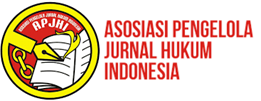Rethinking Sextortion in Malaysia: Lessons from Indonesia on Legal Reform and Victim Protection
DOI:
https://doi.org/10.70193/ijlsh.v2i3.271Abstract
Sextortion consists of elements of sexual exploitation and corruption. It occurs when an individual in a position of authority demands sexual favours in exchange for the performance or non-performance of an official duty. In Malaysia, sextortion remains unrecognised as a distinct criminal offence and prosecuted under fragmented statutory provisions such as the Malaysian Anti-Corruption Commission Act 2009 (Act 694) or the Penal Code (Act 574). This article adopts a doctrinal legal methodology to examine the adequacy of Malaysia’s current legal framework. It draws comparative insights from Indonesia, where sexual gratification has been interpreted as a form of corrupt benefit under the Law No. 31 of 1999 on the Eradication of Corruption Crimes and the Law No. 12 of 2022 on Sexual Violence Crimes (TPKS). The study integrates international and regional literature on sextortion and victim psychology to propose comprehensive reform in Malaysia. The findings suggest that: (1) sextortion should be explicitly included within the definition of “gratification” in Section 3 of the Malaysian Anti-Corruption Commission Act 2009; (2) trauma-informed and victim-centred investigation procedures should be embedded into enforcement practice; and (3) cross-agency coordination between the Malaysian Anti-Corruption Commission (MACC), police, and Anti-Sexual Harassment Tribunal is essential. Comparative lessons from Indonesia demonstrate that clear statutory recognition of sexual gratification as corruption enhances accountability and strengthens victim protection in the digital age.
Downloads
References
Anti-Sexual Harassment Act 2022 (Act 840) (Malaysia).
Bakri bin Mohamad Ah v Pendakwa Raya [2014] MLJU 635 (Sessions Court, Kuala Lumpur).
Bunya Jalong v Public Prosecutor [2005] 1 CLJ 123 (Court of Appeal).
Convention on the Elimination of All Forms of Discrimination Against Women (CEDAW), adopted 18 December 1979, 1249 UNTS 13.
Haezreena Begum Abdul Hamid. (2022). Combatting sexual cyberviolence against women in Malaysia. Malayan Law Journal, 3, ccxxx–ccxlviii.
Helena, R., Lestari, D., & Mulyani, S. (2024). The idea of meaning and regulation of sexual gratification as a crime of corruption in Indonesia. RSF Conference Proceeding Series: Business, Management and Social Science, 4(1). https://doi.org/10.31098/bmss.v4i1.856
Hidayah, S., & Izadi, M. (2025). Perlindungan hukum korban kejahatan pemerasan seksual di media sosial. Bandung Conference Series: Law Studies, 5(1), 31–45. https://doi.org/10.29313/bcsls.v5i1.16012
Human Rights Watch. (2014). I’m Scared to Be a Woman: Human Rights Abuses Against Transgender People in Malaysia. Human Rights Watch Report.
Hutchinson, T., & Duncan, N. (2012). Defining and describing what we do: Doctrinal legal research. Deakin Law Review, 17(1), 83–119.
International Association of Women Judges (IAWJ). (2012). Stopping the abuse of power through sexual exploitation: Naming, shaming, and ending sextortion. Washington, D.C.: IAWJ.
International Association of Women Judges (IAWJ). (2014). Judicial integrity and sextortion: Model policy and training manual. Washington, D.C.: IAWJ.
Law No. 11 of 2012 on the Child Criminal Justice System (Indonesia).
Law No. 12 of 2022 on Sexual Violence Crimes (TPKS Law) (Indonesia).
Law No. 20 of 2001 on the Amendment to Law No. 31 of 1999 on the Eradication of Corruption Crimes (Indonesia).
Malaysian Anti-Corruption Commission Act 2009 (Act 694) (Malaysia).
Mansoor, M. (2015). Sextortion: The crossroad between sexual exploitation and corruption (unpublished)
Mohd Ridzwan Abdul Razak v Asmah Hj Mohd Nor [2016] 6 CLJ 346 (Federal Court).
Penal Code (Act 574) (Malaysia).
Penal Code (Amendment) Act 2025 (Act A1750) (Malaysia).
Transparency International. (2020). Breaking the silence around sextortion: The links between power, sex and corruption. Berlin: Transparency International Secretariat.
United Nations Office on Drugs and Crime (UNODC). (2021). Gender and corruption: The unspoken relationship. Vienna: UNODC Publication.
United Nations Office on Drugs and Crime (UNODC). (2021). Regional Anti-Corruption Resource Centre Report on Gendered Corruption in ASEAN. Bangkok: UNODC.
United Nations Convention Against Corruption (UNCAC), adopted 31 October 2003, 2349 UNTS 41.
Wibowo, A., & Permana, R. (2025). Handling sextortion involving minors: A criminological analysis of the routine activity theory. Jurnal Hukum Sehasen, 5(1), 45–60. https://doi.org/10.37676/jhs.v11i1.7306
Yungsiana, I., & Prabandari, Y. S. (2024). Dinamika psikologis korban sektorsi: Sebuah kajian literatur. Jurnal Psikologi Forensik Indonesia, 4(1), 12–27. https://doi.org/10.18860/psi.v0i0.1553
Zullias Rasid Manan v Public Prosecutor [2017] 9 MLJ 327 (High Court, Kuala Lumpur).
Downloads
Published
How to Cite
Issue
Section
License
Copyright (c) 2025 International Journal of Law, Social Science, and Humanities

This work is licensed under a Creative Commons Attribution 4.0 International License.














